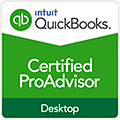As the year comes to a close, it’s the perfect time for real estate business owners to take strategic steps to minimize their tax bill and set themselves up for success in the coming year.
At Virjee Consulting, we focus on forward-thinking tax planning to help you build a path to financial freedom.
Here are five year-end tax strategies for real estate to consider before December 31st.
1. Time Your Depreciation Right
Depreciation is a significant tax-saving tool that reduces your taxable income by accounting for the wear and tear on your assets. The key is to choose the right method to maximize these deductions:
- Bonus Depreciation: This method allows you to write off a substantial portion—or even the full cost—of qualifying assets in the first year of purchase. This can be particularly helpful if you made major asset purchases in 2024, such as new equipment or property improvements. By accelerating your depreciation, you reduce your taxable income significantly in the current year, freeing up cash flow.
- Section 179 Deduction: Similar to bonus depreciation but with some differences, Section 179 lets you deduct the entire cost of qualifying equipment or property in the year it’s placed into service, up to a certain limit. This is ideal for businesses that need an immediate financial boost from new assets.
- Timing Is Everything: If you’ve been considering buying or improving a property, closing the deal before December 31 allows you to claim these deductions for 2024. This timing can make a notable difference in your tax bill.
2. Make the Most of Tax Credits
Tax credits are often overlooked, but they directly reduce your tax liability dollar-for-dollar, making them even more valuable than deductions. Here are a couple of credits real estate businesses should consider:
- Work Opportunity Tax Credit (WOTC): If you’ve hired employees from certain targeted groups, such as veterans or long-term unemployed individuals, you could qualify for this credit, which helps cover wages and reduce your tax bill.
- Research and Development (R&D) Tax Credit: If your business has invested in developing new processes, technologies, or systems to improve your operations, you may qualify for this credit. Even if it sounds unrelated to real estate, certain innovations in property management or construction methods could qualify.
- Energy Efficiency Credits: If you’ve upgraded your properties with energy-efficient features like solar panels or high-efficiency HVAC systems, you could be eligible for additional tax credits.
3. Maximize Medical and Retirement Contributions
Taking full advantage of medical and retirement contributions can reduce your taxable income while securing your financial future:
- Health Savings Accounts (HSAs): If your business offers a high-deductible health plan, contributing to an HSA can provide double benefits: tax-deductible contributions and tax-free withdrawals for qualified medical expenses.
- Flexible Spending Accounts (FSAs): While FSAs don’t roll over from year to year, they allow you to allocate pre-tax dollars for medical expenses, effectively lowering your taxable income.
- Retirement Plans: Max out your contributions to retirement plans like 401(k)s or SEP-IRAs. For business owners, these contributions are not just good for personal financial security—they’re also tax-deductible. Depending on your business structure, you could potentially contribute up to $66,000 to a SEP-IRA for 2024, significantly lowering your taxable income.
4. Utilize the 1031 Exchange and Cost Segregation
For real estate businesses looking to defer taxes and maximize growth, the Section 1031 Exchange is a game-changer:
- The Basics of the 1031 Exchange: This tax strategy allows you to sell a property and defer paying capital gains tax as long as you reinvest the proceeds in a “like-kind” property within specific timeframes (identify within 45 days and close within 180 days). This keeps your capital working for you and helps you scale up to more valuable properties without a large tax hit.
- Cost Segregation Studies: Pairing a 1031 Exchange with a cost segregation study can yield even greater tax savings. Cost segregation breaks down a property’s assets into categories that depreciate faster than the standard 27.5 or 39 years for real estate. This lets you accelerate depreciation and take larger deductions earlier in the property’s life, increasing your cash flow.
5. Consider Year-End Charitable Contributions
Giving back not only benefits your community but can also help reduce your tax liability:
- Make Donations Before Year-End: Ensure that your charitable contributions are made by December 31 to qualify for this tax year. Contributions can include cash, property, or even stock, but be sure to get a receipt and keep proper documentation.
- Donor-Advised Funds: These are an excellent option if you want to make a contribution now but decide later on which charities will receive the funds. You get the tax deduction immediately while retaining the flexibility to distribute the money over time.
- Qualified Charitable Distributions (QCDs): If you’re over 70½ years old, consider using a QCD from your IRA to make tax-free donations directly to a charity, which counts toward your required minimum distribution (RMD).
Bonus: Stay Prepared for Next Year and Keep Accurate Records
As the year wraps up, start thinking about next year’s strategies:
- Plan for Changes: Consider any business structure or operations shifts that may impact your taxes in the coming year.
- Maintain Good Records: Accurate financial records make tax filing smoother and help you spot deductions and opportunities. Regularly updating your books can also prevent headaches during tax season.
The Bottom Line
Year-end tax planning for real estate businesses is more than just saving money now—it’s about laying the groundwork for continued financial growth.
Whether you’re leveraging depreciation strategies, taking advantage of tax credits, or making charitable contributions, being proactive can pay off in significant ways.
If you’re not sure where to start or need tailored guidance, Virjee Consulting is here to help.
Let’s make sure you end this year on a strong financial note. Reach out to us today!














